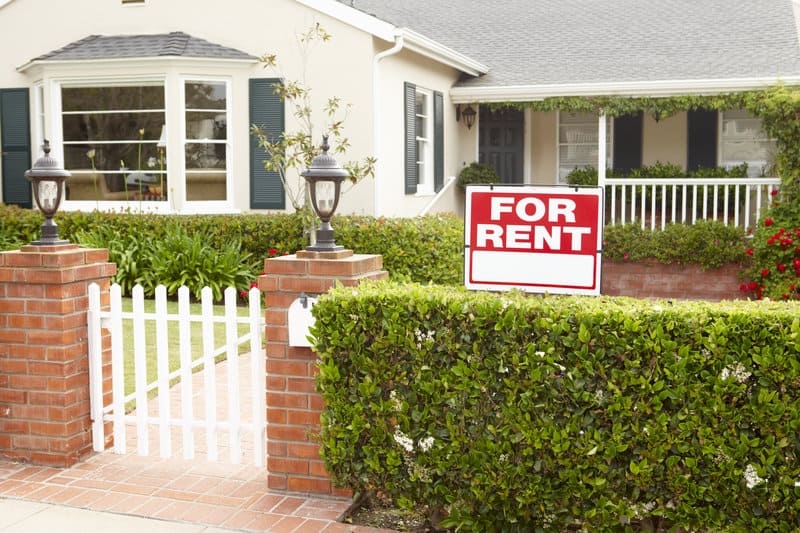
Are you a California renter? Or, are you moving from out-of-state into a California rental property? If so, your landlord has certain obligations you should know and understand to protect your legal renter’s rights. If you’re moving to a rental property outside of California, we recommend consulting with that state’s renter’s rights pages to learn more about your landlord’s obligations.
7 Landlord Obligations To Renters You Should Know
Here are 7 of the most important landlord obligations, or renter’s rights laws, you should know about. Read Nolo.com’s, Top 10 Landlord Legal Responsibilities in California, to learn more about these and others in more detail.
You’re entitled to equal opportunity renting
Landlords are never allowed to discriminate when screening potential renters. While you may be rejected for low credit scores, inadequate funds, a prior eviction, or a poor rental reference – a landlord may never refuse to rent to you based on your color, race, gender or non-binary identity, nation of origin, religion, and so on.
Landlords must abide by the federally mandated, Fair Housing Act of 1968, as amended (42 U.S. Code § § 3601-3619 and 3631.
Landlords must disclose certain information
You can get a good idea about whether or not a property is right for you in a single walk-thru. It may even meet all of the criteria in your checklist. However, there may be things you would never know unless the landlord provides legal disclosures.
Things a landlord should disclose prior to you signing the rental or lease agreement include:
- Information about the National Sex Offender database
- If there is toxic mold on the property or its structures
- Which utilities you are responsible for
- If the property is in a designated flood zone
- If you are responsible for other tenants’ utilities
- former federal or state ordinance in the neighborhood
- If they use a pest control service
- No smoking policies
- Whether they plan to demolish the unit
- If there is a notice of default on the property(ies)
- Information about bed bugs
- Whether the property is contaminated by methamphetamine
- If there has been a death on the premises in the past three years
Failure to disclose these items in writing and prior to the start of your tenancy is a violation of the landlord’s obligations to you as a renter.
They must respect your privacy
Even if your landlord shares the same property, s/he must respect your privacy at all times. This means providing at least 24-hours notice before entering your rental property for annual inspections, to make repairs, or to show the property to prospective tenants.
There is a limit to deposit amounts and rules regarding a deposit’s return
This is perhaps the most contested item between landlords and tenants. And, in most cases, landlords violate their obligations regarding rental deposit amounts and the amount and time frame for a deposit’s return after you move out.
First, your security deposit can not be more than the equivalent of two months’ rent, and that includes the pet deposit; that amount is more if the unit is furnished. Once you’ve moved out, your landlord must return your security deposit within 21 days.
Landlords often mistakenly deduct the security deposit amount because they’re unclear of landlord obligations and renters’ rights. Click Here to read more about California laws pertaining to security deposits and returns.
You have the right to withhold rent
Typically, you will owe your rent in full by the first of each month (or within the written/signed grace period) unless your rental/lease agreement states otherwise. However, there are cases where a tenant can legally withhold rent.
If your landlord fails to repair your heater, hot water heater, water supply, reported mold or pest infestation in a timely manner you have the right to withhold rent, move out without notice, to call state health/building inspectors and report the issue, to repair the issue on your own and deduct the repairs from future rent (with receipts), or to sue you landlord.
It’s illegal for landlords to retaliate against tenants upholding their legal rights
Knowing your rights, and executing them, are two separate things. Often, it’s extremely stressful for tenants to stand up for their rights because they fear their landlord will react negatively or even retaliate. Fortunately, the law provides for this as well.
It is illegal for landlords to retaliate against a tenant if:
- The tenant complains about unsafe or illegal living conditions
- Unsafe or illegal living conditions are reported to government or health officials
- To terminate rental/lease agreement due to changes in residency/immigration status
- A group of tenants bands together to report negligence or other issues to landlord or property management company
Finally, landlord obligations also include eviction procedures
Landlords must go through very specific procedures in order to evict a tenant. This requires specific paperwork and noticing, within the right time frame. For example, if you’ve inhabited a property illegally, landlords must go through a 3-day, unconditional quitclaim process. If a landlord wants or needs you to move out for other reasons, they typically need to provide at least 60-days written notice.
If You’re Getting Ready To Move…
Are you preparing for an upcoming move into a California rental? Contact the hardworking and dependable team here at Jay’s Moves. We’ve provided reliable, professional, and expert moving services to Bay Area residents and their families for decades.
